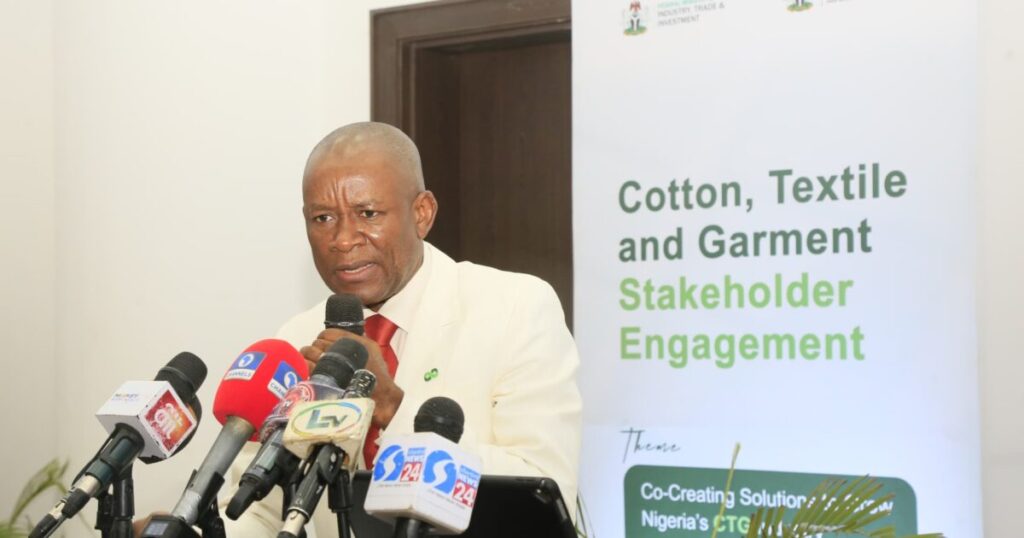The Federal Government is set to launch industrial hubs in Kano, Abia, Lagos, and Ogun states.
The Minister of State for Industry, Senator John Enoh, disclosed this at the 16th National Council on Industry, Trade and Investment held in Lagos.
Enoh declared that Nigeria’s economic transformation hinges squarely on the bold agenda of the Industrial Revolution Work Group, a cross-sectoral initiative he inaugurated in February this year.
He disclosed that the government will soon unveil agro-processing hubs in Kano, textile clusters in Aba and Lagos, and a pharmaceutical production enclave in Ogun.
A statement by the minister’s Senior Special Adviser on Strategic Communications, Ifeoma Williams, said that under the Renewed Hope Agenda of Tinubu, the minister unveiled a suite of transformative projects set to launch in the coming months.
They include “agro-processing hubs in Kano, turning cassava into ethanol and starch while powering thousands of new jobs;
“Textile clusters in Aba and Lagos, poised to reposition both cities as regional powerhouses for garment manufacturing and export, and a pharmaceutical production enclave in Ogun State, aimed at securing Nigeria’s medicine supply chains and drastically cutting import dependency.”
Enoh declared that this is no time for pilot programmes or policy lip service. “We are entering an era of full-scale industrialisation where every investment, every reform, every decision must drive us toward a globally competitive, inclusive, and innovation-led economy,” he stated
Speaking to a high-level audience comprising federal and state officials, captains of industry, and development partners, Enoh described the IRWG as a strategic engine room designed to dismantle legacy barriers, ignite real sector productivity, and position Nigeria as a continental powerhouse of value-added manufacturing.
He called on all stakeholders to “move from rhetoric to results” by aligning with the IRWG to unlock financing for MSMEs, activate dormant industrial zones, and build thriving, employment-generating clusters across the federation.
The 16th session of the Council, held under the theme “Accelerating Diversification by Leveraging Industry, Trade and Investment for Shared Prosperity”, reviewed a total of 75 memoranda, including 40 information items and 30 actionable recommendations, marking a significant step toward a more implementation-focused industrial agenda.
He added, “This council is not just another policy gathering, it is a clarion call to transform ambition into action. We stand on the edge of a new industrial dawn. The time to act is not tomorrow, it is now.”
Enoh outlined the five foundational pillars of the IRWG—Financing and Investment Transformation, Energy and Infrastructure Modernisation, Regulatory Reforms and Ease of Doing Business, Product Standards and Market Expansion, and Human Capital Development and Industrial Innovation.
He emphasised that these are no longer theoretical constructs, but real-world levers already being activated nationwide.
He concluded by extending a decisive call to the private sector and sub-national governments to “embrace this momentum with both hands,” declaring that the IRWG offers an unprecedented opportunity to convert Nigeria’s vast potential into measurable industrial might.















